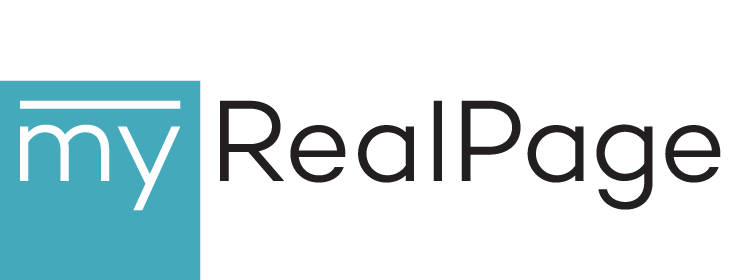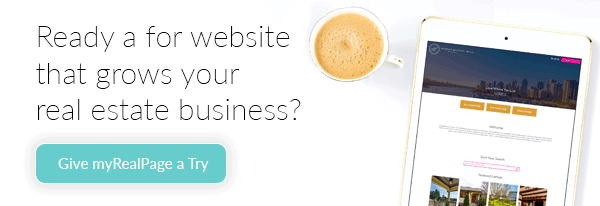The Ultimate Guide to Getting Started In Real Estate

So you aced your real estate exams. Or you’re about to.
Soon, you’ll be whipping up a real estate website, building a client roster that legacy agents will envy and heading down the money-tree-lined road to total real estate domination.
Maaaaaybe.
If you studied, passing your real estate exams is a cakewalk. If you read the right real estate website guides, launching your own site is no big deal.
But the art of converting leads, offering next-level customer service and building a top real estate business that will last? It ain’t simple. For every working agent, there are dozens who didn’t make it.
To help newbie real estate agents prepare to hit the ground running, we’ve distilled the top tips, strategies and advice into this — the ultimate guide to getting started in real estate.
Choose the Right Brokerage
Don’t pick a brokerage because it’s the brokerage your friend belongs to or because it’s the name you’re most familiar with.
It’s a personal decision, based on several factors. You need to consider:
• The commission split. How much of your commission will they keep?
• The location. Where is the office located? Is it a painless commute from your home or will you be stuck in your car for hours?
• The brand. Think about the brokerage’s brand — its voice, tone, style, and what those communicate. Some brokerages may communicate a young vibe, while others express an older, more traditional style. What do you want to be affiliated with?
• The support. What will you receive in return for your commission split? This could include technology, training and development opportunities, mentorship, IT support, advertising subsidies, and access to the brokerage’s own marketing tools.
• The network. How robust is their sphere of connections and referrals? If it’s not huge, do they make up for it in other ways, such as hyper-local credibility?
Identify Your Personal Brand
Having a well-defined personal REALTOR® brand will be key to your success. It’s what helps you stand out from your competition and attract clients who feel like they can relate to you.
What makes up your personal brand? Consider the following:
• Market segment. Decide if you want to focus on a particular client or housing type, such as first-time buyers, retirees, income properties, or vacation rentals.
• Unique skills. These could be social media marketing expertise, interior design know-how or event planning skills, for example. They add to your unique value proposition.
• Vibe. As in, how you want clients to perceive you. Are you the young, hip, laidback agent? Are you the traditional, more formal agent?
All of these elements contribute to your personal brand. For example, maybe your brand is ‘young, hip agent with top-notch social media marketing skills who specializes in first-time buyers.’
Knowing your brand will help you tailor your marketing and focus your lead generation efforts accordingly, keeping you focused.
Establish a Realistic Budget and Income Projection
Money is usually what keeps new real estate agents from succeeding. Too little coming in, and too much going out.
Assuming you’ve already paid for your exams and licensing fees, your first expenses will be for things like business cards, your website, software and marketing tools, and even professional clothing.
These expenses (and how much they cost) will differ from agent to agent of course, depending on personal needs and what your chosen brokerage supplies. Once you’ve identified what your startup and first-year expenses will be, build a detailed monthly budget.
Now take a realistic look at what you might make in your first year of work. Assume you’ll be doing a lower volume of deals in year one. Calculate your commissions based on average-priced homes in your market and what your share will be after fees.
Compare your projected income with your budget. Will you need to reduce expenses? After expenses, is your take-home pay enough to survive on during year one?
This part of establishing your real estate business is crucial. Don’t go in blind; having projections and a budget in place will keep you in the black, even if you’re just getting by in those tough first few months.
Find a Mentor
Real estate is very competitive. Having a trusted ally who knows the industry well can be hugely helpful. A good mentor will give you advice on how to approach certain situations, listen to you rant and teach you things about the industry that you didn’t know.
The key is to find a non-competitor. This could be a friend or family member in the biz, or an agent who works in a different market, or a more senior agent in your brokerage who seems to be invested in helping junior agents.
When you approach someone to mentor you, make it clear that you’re simply looking for a bit of advice from someone whose career you admire. Suggest a monthly coffee date or phone call. Make it clear that the commitment is minimal and that you’re not looking to infringe on their business.
Develop a Marketing Plan
Don’t start marketing your real estate business all willy-nilly. No spontaneous tweets or off-the-cuff newsletter mailings. You need a plan for what you want to achieve and how you’re going to achieve it.
Your marketing plan will include:
• Objectives. Goals, like web traffic numbers and newsletter subscriptions.
• Target markets. Are you pursuing buyers or sellers? Millennials or empty nesters?
• Tactics. What you’ll use to meet your objectives; Instagram, Pinterest, blog posts, postcards, etc.
• Budgets. What you’ll spend on your tactics.
• Schedules and workflows. When and how you’ll carry out each tactic, by month, week and day.
• Assessments. How and when you’ll measure the results of your efforts.
To dig deeper, check out our in-depth guide to building a real estate marketing plan .
And also learn which web programming languages can be suitable for creating your company on the Internet.
Build a Referral Network
There are two types of referral networks that real estate agents can use to find leads and win new business:
Non-agents. This network is comprised of relationships with non-agent business people, such as local coffee shop owners, hair stylists, interior designers, and mortgage brokers.
You and all these people agree to help one another land new business by leveraging your relationships with your own clients. For example, when someone mentions to their hairstylist that they want to sell their home, the hairstylist recommends you, an agent, and shares your business card.
Agents. This kind of network works similarly, except it’s comprised of REALTORS® who have a financial stake in the referrals. For example, if you refer someone to another agent who sells that person’s home, you would receive a percentage of the commission.
Why would you give away business? Good question! This tactic is best for situations where you aren’t able to take a client on, because of physical location, lack of time or conflict of interest.
Referral networks help agents establish relationships with their community and their peers, grow their business and improve client satisfaction.
To help you build these networks, we’ve put together guides: check out how to build a local referral network and how to build a real estate agent referral network.
Are you a new real estate agent? What are your goals for year one?
Last Updated on June 27, 2024 by myRealPage


